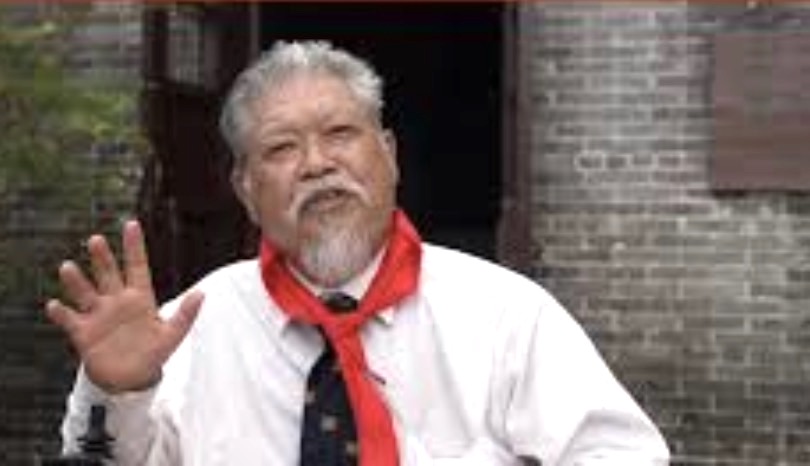
Leigh-Wai Doo
A Leader of Peace
for Hawaii and China
An exhibition, titled “Hawai’i’s ‘Free Spirit’, was opened with a public reception, complimentary to all, at the Hawai’i State Library, 478 S King St, Honolulu, HI 96813, Saturday November 23, beginning at 12 noon.
Under the leadership of Leigh-Wai Doo, this project was researched, assembled, designed and produced by the Sun Yat-Sen Memorial Museum, Zhongshan China, and shipped to Honolulu for this special occasion.
Supported by the Zhou Enlai Peace Institute
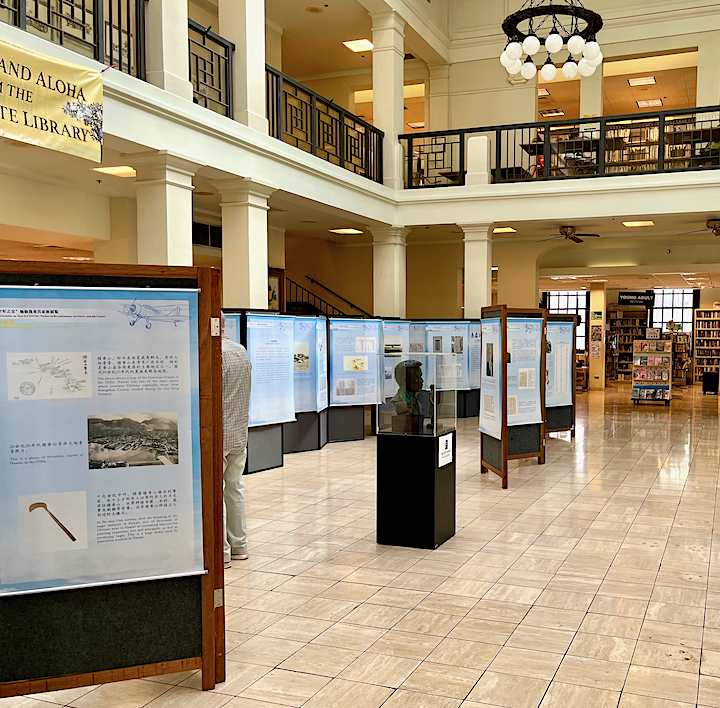
Summary:
Leigh Wai Doo is a significant figure in Hawaii, with a long history of public service, diplomacy, and cultural leadership. He overcame a severe case of polio in childhood to become a Honolulu City Council member, an attorney, and an active participant in local and international relations. His work bridges Hawaii, the U.S., and China.
Leigh Wai Doo has contributed significantly to preserving the legacy of Sun Yat-Sen, a founder of the Republic of China, highlighting Hawaii’s influence on Sun Yat-Sen’s development and revolution.
Leigh Wai Doo serves on the Board of Directors of the Sun Yat-Sen Hawaii Foundation, which aims to document and celebrate Sun Yat-Sen’s connections with Hawaii. As a student at Punahou School in Honolulu, Sun Yat-Sen laid early foundations for his revolutionary thinking. Through this foundation and various public initiatives, Leigh Wai Doo has played a key role in fostering deeper cultural ties between China and Hawaii, emphasizing the historical contributions of Chinese Hawaiians.
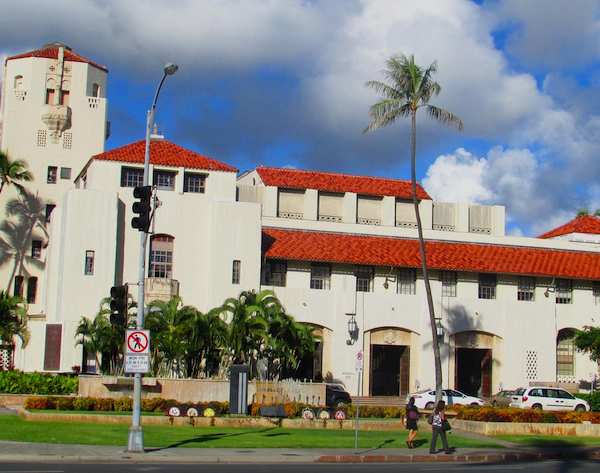
Honolulu City Hall
Detail:
Leigh Wai Doo has made significant contributions to preserving and promoting the legacy of Sun Yat-Sen, the first provisional president of the Republic of China. As a founding president of the Sun Yat-sen Hawaii Foundation, Leigh Wai Doo’s efforts emphasize the historical connection between Sun Yat-Sen’s revolutionary activities and the support he received from Hawaii’s Chinese community.
Sun Yat-Sen, who studied at Punahou and Iolani schools in central Honolulu during his youth, found critical financial and political backing in Hawaii for his efforts to modernize and prepare China to move beyond colonialism and establish itself as an independent nation.
Leigh Wai Doo’s work extends beyond historical preservation; he has also fostered diplomatic connections between Hawaii, the U.S., and China.
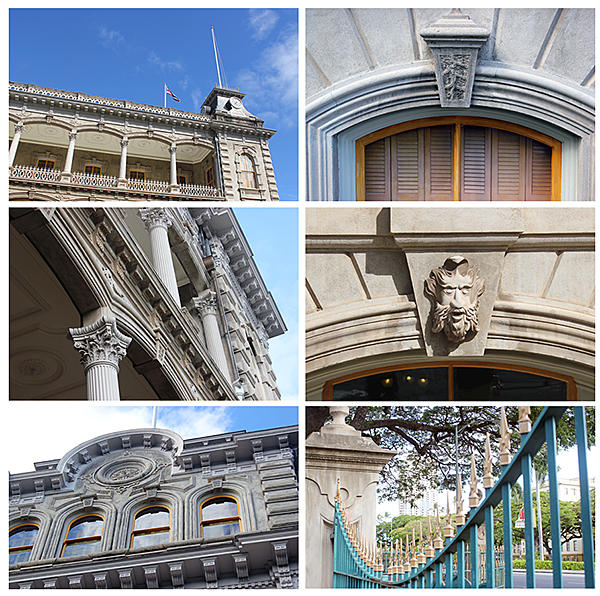
‘Iolani Palace
As a Honolulu City Council member, he spearheaded Hawaii’s first sister-city relationships with China in Hainan Island Economic and Trade Zone, enhancing cultural and economic exchange. These diplomatic initiatives were recognized when he became the first Honorary Citizen of China’s Hainan Province.
He was the founding Associate Dean of the William S. Richardson School of Law, on the campus of University of Hawai’i Manoa, and a member of the Bar Association of Hawai’i, where he was recognized Greeley-Key Award for Innovation in the law. Lee-Wai Doo is the author of a peer-reviewed paper, “Dispute Settlement in Chinese-American Communities,” published in 1973 by the American Journal of Comparative Law. He was the first elected Chinese-American President of the Student Body of Punahou Academy, setting a new precedent after 122 years.
https://www.jstor.org/stable/839082
He baked bread for the Poor People’s Campaign organized by Dr. Martin Luther King in the summer of 1968, in Washington DC. Doo continued his education at Columbia College and later earned his Juris Doctor from Harvard Law School in 1971.
Along with all these civil accomplishments, Leigh Wai Doo was also a well-known surfer. He was accepted by his peers for his wave riding skills, and was recognized as a Legend of Big Wave Surfing by the Eddie Aikau Family Foundation.
http://home.brisnet.org.au/~bgreen/temp/LWD/LWD2A.htm
https://www.eddieaikaufoundation.org/our-history
Leigh Wai Doo has continued to lead journeys of cultural discovery, guiding more than 35 exchange groups to China, helping bridge cultural understanding between nations, and sharing the importance of family and ancestral heritage. His influence spans the legal, political, and diplomatic arenas, reinforcing the role Hawaii has played as a unique intersection between East and West
More Detail: Sun Yat-Sen Connection
Leigh Wai Doo’s connection to Sun Yat-Sen emphasizes the importance of Hawaii’s role as a cultural and political bridge between China, America, and the broader world. Sun Yat-Sen, a founding father of the Republic of China, spent his formative years in Hawaii, attending Punahou School, where he was immersed in Western education. This background enabled Sun to appeal to both Western and Chinese communities for support during his revolutionary efforts to overthrow the last Empire of China, the Qing dynasty.
Hawaii played a pivotal role in supporting Sun’s revolutionary activities. Many members of the Chinese diaspora in Hawaii, including Sun’s close allies, contributed financially and strategically to the creation of modern China. The ties between Hawaii and China were further cemented through the leadership of Leigh Wai Doo, who continued to honor Sun’s legacy in his diplomatic efforts, notably participating in ceremonies at the Great Hall of the People in Beijing.
Leigh Wai Doo’s work underscores the deep historical connections between Hawaii and Chinese leadership movements, exemplified by Sun Yat-Sen’s role in founding the Whampoa (Huangpu) Military Academy, where future leaders like Zhou Enlai were shaped. Huangpu Academy became a cornerstone of both Nationalist and CPC military education, nurturing leaders from opposing factions of Chinese history.
Leigh Wai Doo’s engagement with this legacy reflects the interplay between education, diplomacy, and revolution—mirroring Sun’s approach of bridging East and West. His ongoing diplomatic efforts highlight the importance of using these historical ties to foster mutual understanding between China and the United States.
https://nzchinasociety.org.nz/wp-content/uploads/2017/03/USCRWinter2017_Final.pdf
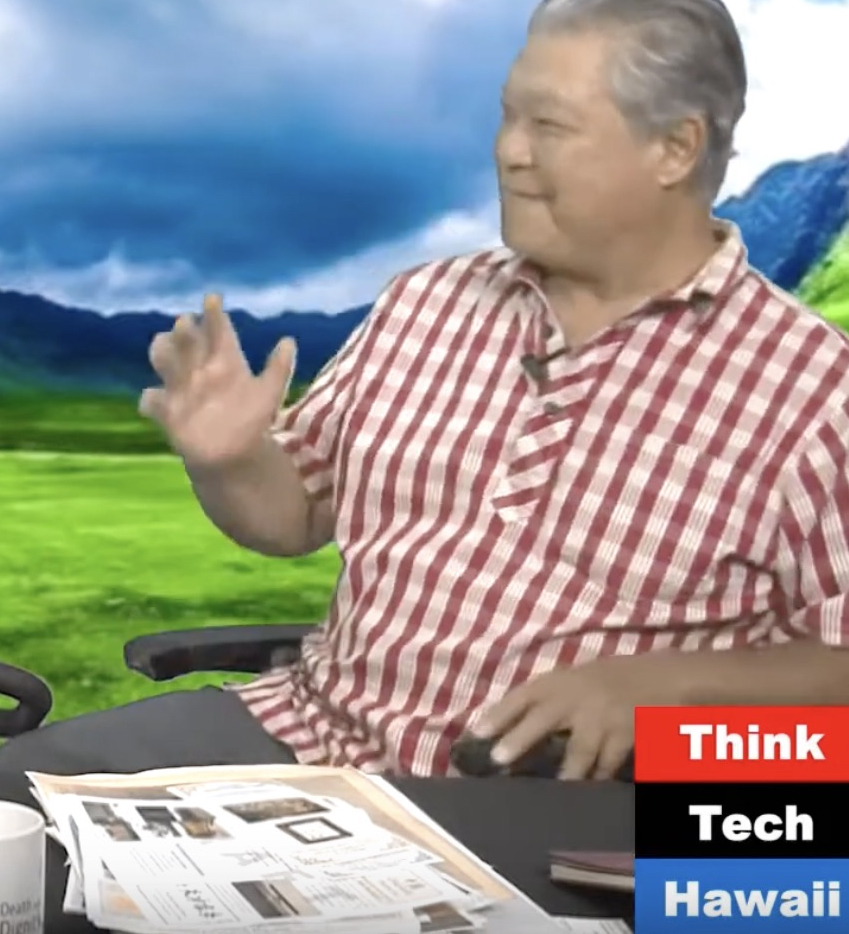
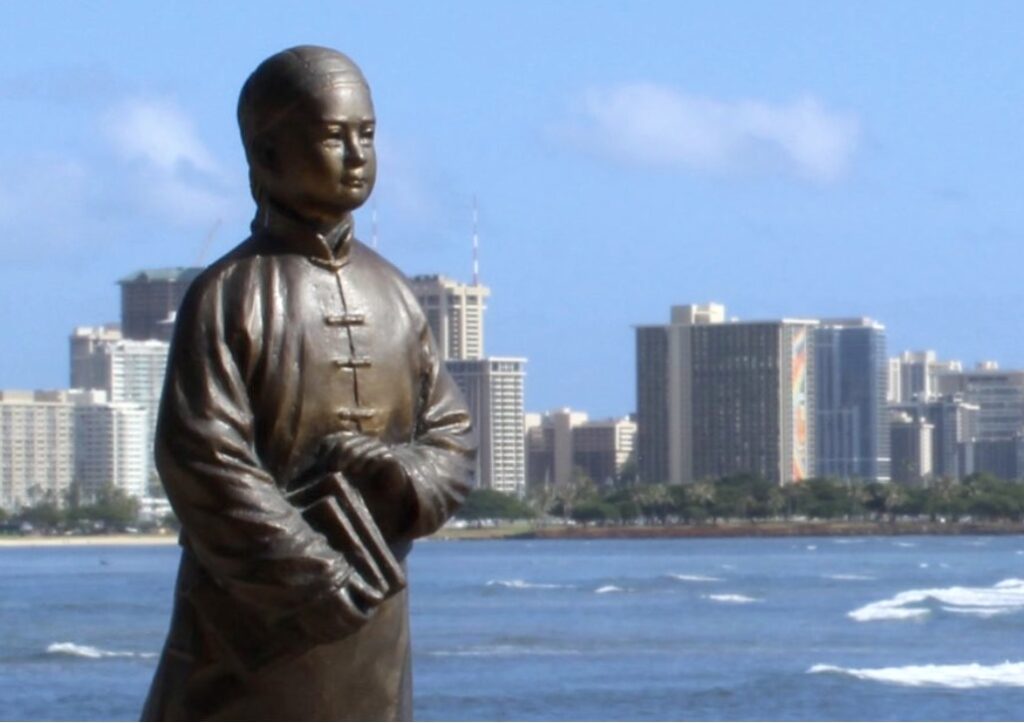
statue of Sun Yat-Sen in the center of downtown Honolulu
Punahou School Detail
Punahou School, located in Honolulu, Hawaii, has nurtured many influential alumni across diverse fields. Most notably, former U.S. President Barack Obama and his sister, Maya Soetoro, graduated from Punahou. Mr. Obama’s experience there shaped his early perspectives on diversity and public service, and his sister’s work with the Obama Foundation and other restorative justice groups extends around the world.
An original founder of the Republic of China, Sun Yat-Sen, attended Punahou, where the influence on his activities in helping to establish the modern independent nation of China was profound.
Several other prominent figures also emerged from this prestigious institution:
- Steve Case – Co-founder of AOL, a leader in internet services.
- Pierre Omidyar – Founder of eBay, revolutionizing online marketplaces.
- Michelle Wie – A golf prodigy, competing professionally from a young age.
- Buster Crabbe – Olympic swimmer and actor, who portrayed both Tarzan and Flash Gordon in popular films.
- Kelly Preston – Actress and wife of John Travolta, known for her film career.
- Mosi Tatupu – A professional NFL player from American Samoa.
- Rod Lurie – Film director and creator of Commander in Chief, a TV show about a female U.S. president.
Punahou’s alumni list reflects a blend of athletic excellence, artistic achievements, and entrepreneurial successes. It continues to foster leaders who make significant contributions to business, politics, arts, and community service worldwide
https://www.mentalfloss.com/article/16036/notable-alumni-hawaiis-punahou-school
https://m.famousfix.com/list/punahou-school-alumni
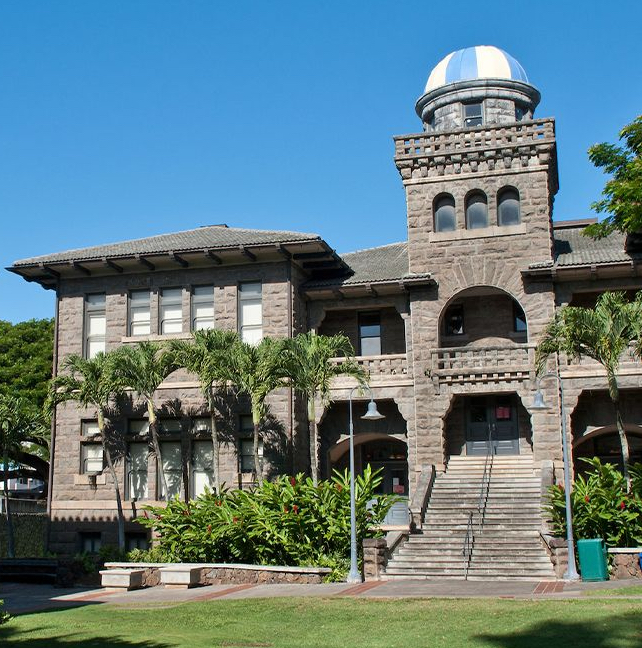
Punahou School
A Mystery
At this time (October 2024) there are no publicly-accessible records or confirmed direct interaction between Queen Liliʻuokalani and Sun Yat-Sen during his time in Honolulu or afterward.
However, there are historical overlaps that hint at an intriguing context. Sun Yat-Sen was deeply influenced by his years in Hawaii, attending ‘Iolani School and Punahou School, and later returning multiple times to Honolulu for revolutionary fundraising and organizing efforts. His time in Hawaii significantly shaped his vision of republicanism, which he carried back to China as a revolutionary leader.
The geographic proximity of Punahou School to ‘Iolani Palace, where Queen Liliʻuokalani lived (a 15-minute walk), suggests the potential for their circles to intersect. The Queen herself was deeply engaged in fostering diplomatic relations, cultural preservation, and social reform amidst the turbulent politics of Hawaii’s monarchy and annexation by the United States. While no documented interactions between the two leaders have yet been identified, their shared environment—marked by resistance to foreign domination and a desire for cultural sovereignty—hints at mutual sympathies.
Sun Yat-Sen’s network in Honolulu was robust, involving societies and publications, including the Hsing Chung Hui, which held meetings to support anti-Imperial efforts in China. Meanwhile, Queen Liliʻuokalani’s role in preserving Hawaiian traditions and autonomy mirrors Sun’s pursuit of revolution in China—both figures stand as symbols of cultural resistance against colonialism, and an adherence to a strategy of non-violence, during overlapping time periods in Hawaii.
The nuanced parallels between their missions and the societies they engaged with make the prospect of such a connection fascinating to explore further. Two intriguing contemporaneous references exist:
• Sun Yat-Sen had a son, born at Kamaole, Kula, Hawaii in 1892. On January 4, 2012, the young Sun Fo set sail from Honolulu aboard the Chiyomaru, bound for China to meet his father. The Honolulu newspaper Aloha Aina says about Sun Fo’s departure: “This Thursday, he visited with Governor Frear and Queen Liliuokalani.”
https://nupepa-hawaii.com/tag/chiyomaru-ship/
• We also know that Princess Lili’uokalani was present when Sun Yat-Sen’s son received an award, upon graduation from ‘Iolani School, honored for his book on English grammar. Was the father aware of his son’s accomplishment? Could this be when the paths of the future Queen and the founding President of China may have crossed? More research is needed.
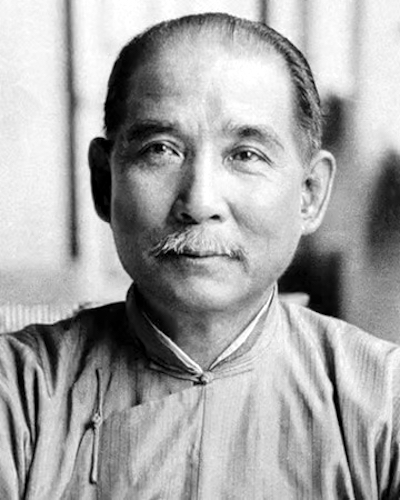
It is possible that these two leaders knew about each other. They were simultaneously active in political and community affairs for several years, in the same small city (58,000 estimated in 1900), isolated in the central Pacific. The Queen likely knew about the future President of China; the future President of China likely knew about the Queen.
Did they meet, talk, correspond? What influence did they have on each other? What information about the tiny Territory of Hawaii and its future emergence as a young State in the USA, dedicated to non-violence, may have been brought by Sun Yat-Sen to Shanghai, and shared with future Premier Zhou Enlai during the founding of the new China?
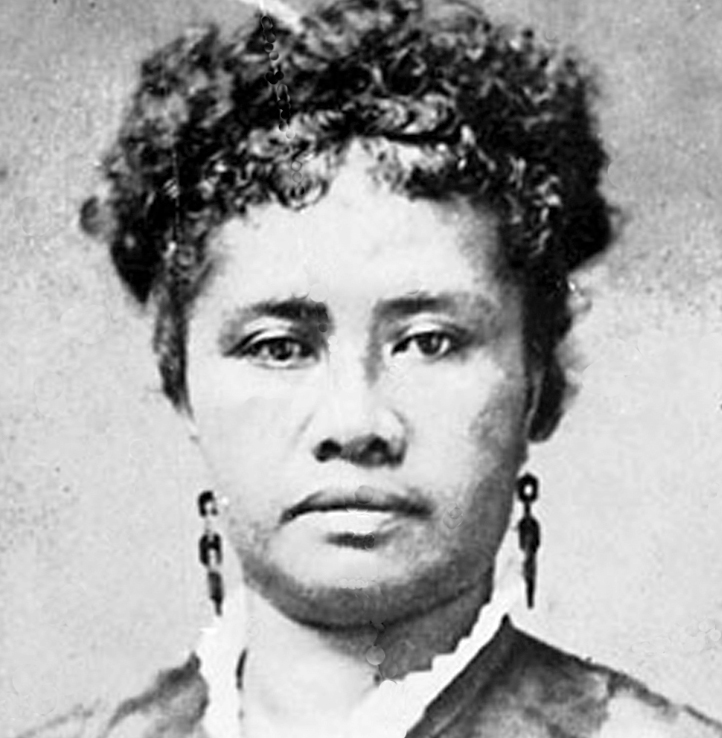
These are questions worthy of careful, professional scholastic research, in the historical archives of Hawaii and China.
https://sunyatsenhawaii.org/2008/10/18/events-in-dr-suns-era/
Leigh Wai-Doo assisted in the publication, and wrote the foreword, for a definitive work on the Hawaii connections of Sun Yat-Sen, called “Sun-Yat-Sen in Hawaii” where the mystery may begin to be revealed:
https://www.amazon.com/Sun-Yat-Sen-Hawaii-Activities-Supporters/dp/0824821793/
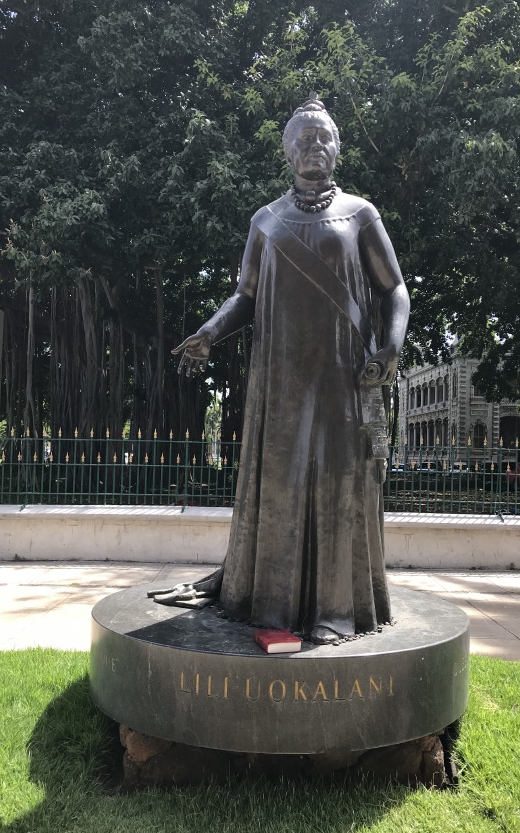
A statue of Queen Lili’uokalani stands between ‘Iolani Palace
and the Statue Capitol of Hawai’i
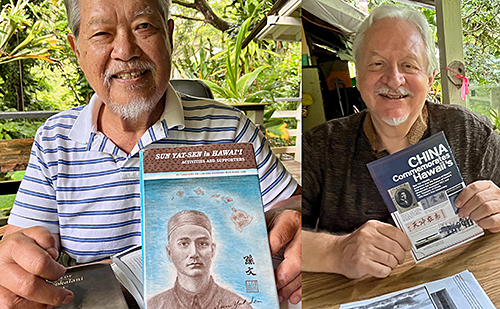
Leigh Wai Doo at a recent meeting with Michael North, co-founder of the
Zhou Enlai Peace Institute, in Leigh-Wai’s home in the mountains above Palolo, Honolulu


